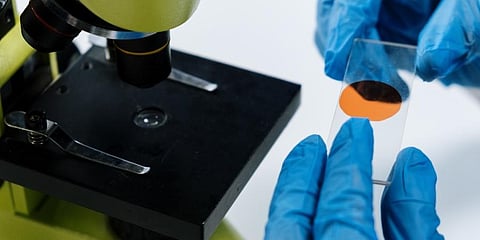

NEW DELHI: The Ministry of Culture is in the process of acquiring an array of DNA profiling kits and associated state-of-the-art machines for establishing the genetic history and “trace the purity of races in India”. Highly placed government sources said the acquisition process began recently following a meeting that Ministry of Culture Secretary Govind Mohan held with well-known archaeologist Professor Vasant S Shinde and senior scientists and scholars of the Lucknow-based Birbal Sahani Institute of Paleosciences (BSIP) in Hyderabad two months ago.
Shinde is adjunct professor at the Bangalore-based National Institute of Advanced Study and director of the Rakhigarhi Research Project. Founder of the Society of South Asian Archaeology, Prof Shinde’s research contribution includes “DNA analysis and craniofacial reconstruction of Harappan People”.
When contacted over phone, Prof Shinde admitted that the gadgets were in the process of being acquired. He said, “We want to see how mutation and mixing of genes in the Indian population has happened in the last 10,000 years. Genetic mutation depends on the intensity of contact among populations and the time that this process takes. We will then have a clear-cut idea of the genetic history. You may even say that this will be an effort to trace the purity of races in India.”
The Kolkata-based Anthropological Survey of India (ANSI), which has, “of late”, expressed “disinclination” to proceed with the exercise to trace the genetic origins of early Indians because the issue is “politically loaded”, is also part of this project which was initially conceived in 2019. A budget of `10 crore has been earmarked for procuring the DNA profilers and the other related scientific gadgets, sources said. The aim, according to the ANSI, is to “develop a resource of cell lines and DNA samples that can be used to study DNA sequence polymorphism in contemporary Indian populations”.
More importantly, the ANSI seeks to “establish (the) Indian role in the dispersal of modern humans out of Africa” because “modern humans could have taken the ‘southern route of dispersal’, utilising the coastlines to travel from Africa, through Arabia, across the Indian subcontinent and then into South-East Asia and finally into Australia”.
Secondly, the ANSI wants to understand the genetic diversity of Indian populations among various ethnic groups in different regions of India based on direct re-sequencing of haploid genomes. By its own admission, under this project, the ANSI has studied 75 communities comprising 7,807 blood samples from different parts of the country. These communities include the Jarawa, Nicobarese, Andh, Kathodi, Madia, Malpaharia, Munda, Bhoi Khasi, Nihal, Toto, Dirang Monpa, Paitei, Lepcha and a host of others.